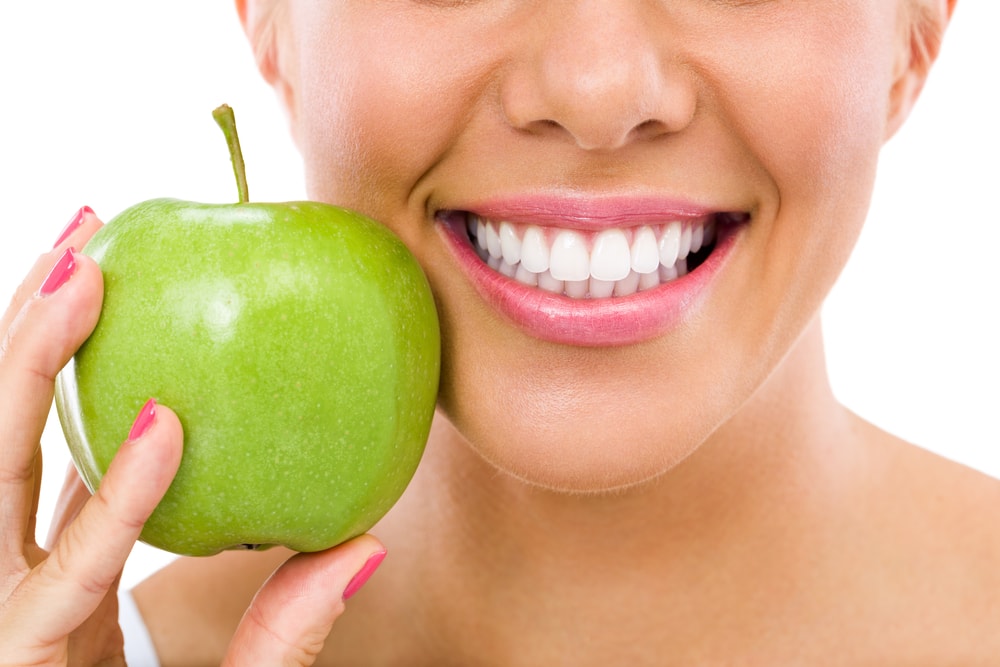Diet directly impacts dental health. Proper nutrition and good oral hygiene habits maintain healthy teeth and gums.
Maintaining optimal dental health involves more than just brushing and flossing. The food and drinks we consume play a crucial role in the health of our teeth and gums. A balanced diet rich in essential nutrients, such as calcium, vitamin C, and fiber, can help prevent tooth decay and gum disease.
On the other hand, frequent consumption of sugary and acidic foods can lead to cavities and erosion of tooth enamel. Understanding how diet affects dental health and making informed dietary choices are key to maintaining a healthy and radiant smile.
Contents
- The Link Between Diet And Dental Health
- Key Nutrients For Healthy Teeth
- Foods To Smile About
- Sugars And Acids: A Cavity Caution
- Snacking For Dental Health
- Beverages That Benefit Your Bites
- Foods To Avoid For Optimal Oral Health
- Maintaining Dental Health Through Diet
- Practical Tips For Dental-friendly Diet
- The Role Of Oral Hygiene In Conjunction With Diet
- Frequently Asked Questions
- Conclusion
The Link Between Diet And Dental Health
Discover the fascinating link between diet and dental health. Learn how the food we consume affects our teeth and explore effective ways to maintain optimal dental health.
Impact Of Nutrients On Teeth
Eating a balanced diet is not only beneficial for your overall health but also plays a crucial role in maintaining good dental health. The nutrients you consume have a direct impact on the strength and condition of your teeth.
Calcium is a vital nutrient that helps in the development and maintenance of strong teeth and bones. It is found in dairy products like milk, cheese, and yogurt. Incorporating these calcium-rich foods into your diet can help prevent tooth decay and promote healthy teeth.
Phosphorus, another essential mineral, is also beneficial for dental health. It works in conjunction with calcium to strengthen tooth enamel and prevent cavities. Good sources of phosphorus include fish, eggs, nuts, and beans.
Vitamin D is necessary for the absorption of calcium, making it essential for maintaining strong teeth. You can obtain vitamin D from sunlight, fatty fish like salmon, and fortified dairy products.
Harmful Dietary Habits
While certain nutrients promote dental health, some dietary habits can have adverse effects on your teeth. It’s important to be aware of these habits and take steps to minimize their impact.
Sugary and acidic foods and beverages can erode tooth enamel and increase the risk of cavities. Limiting the consumption of sugary snacks, sodas, and acidic fruits can help protect your teeth.
Frequent snacking throughout the day can also be harmful to dental health. When you snack, the bacteria in your mouth produce acids that attack tooth enamel. Try to minimize snacking and opt for healthier alternatives like fruits and vegetables.
Lastly, avoiding tobacco products is crucial for maintaining dental health. Smoking or chewing tobacco can lead to gum disease, tooth discoloration, and even oral cancer. Quitting tobacco is not only beneficial for your overall health but also promotes healthy teeth and gums.

Credit: www.glenroydental.com.au
Key Nutrients For Healthy Teeth
Calcium-rich Foods
Calcium is essential for maintaining strong teeth and bones. Consuming dairy products such as milk, yogurt, and cheese can help to meet your daily calcium needs. Additionally, leafy green vegetables like kale and broccoli are rich sources of calcium. Incorporating these foods into your diet can support optimal dental health.
Vitamins D And K2
Vitamins D and K2 play a crucial role in dental health. Fatty fish like salmon and tuna are excellent sources of vitamin D, while egg yolks and cheese provide vitamin K2. These nutrients aid in the absorption of calcium and contribute to the maintenance of healthy teeth and gums.
Phosphorus Sources
Phosphorus is another vital nutrient for dental health. Lean meats, poultry, nuts, and whole grains are rich in phosphorus, promoting the repair and maintenance of tooth enamel. Including these phosphorus sources in your diet can help to fortify your dental health.
Foods To Smile About
When it comes to dental health, the connection between diet and teeth is undeniable. A healthy diet plays a crucial role in maintaining strong teeth and preventing dental issues. Let’s explore some foods that can make us smile brighter and healthier.
Crunchy Fruits And Vegetables
Eating crunchy fruits and vegetables such as apples, carrots, and celery can be beneficial for dental health. The crisp texture of these foods helps to scrub away plaque and debris from the teeth, while the natural fibers stimulate the gums.
Dairy Products For Dental Care
Dairy products like milk, cheese, and yogurt are rich in calcium and phosphates, which are essential for strengthening tooth enamel and preventing decay. Additionally, dairy products help to balance the pH level in the mouth, reducing the risk of cavities.

Credit: dentistry.uic.edu
Sugars And Acids: A Cavity Caution
The link between sugars and acids in our diet can significantly impact dental health, leading to cavities. It’s essential to be mindful of the effects of what we consume on our teeth and to maintain good oral hygiene practices to prevent dental issues.
Effects Of Sugar On Tooth Decay
Consuming excessive amounts of sugar is a major contributor to tooth decay. When we consume sugary foods and beverages, the bacteria in our mouths feed on these sugars and produce acids as a byproduct. These acids then attack the tooth enamel, causing it to weaken and eventually leading to cavities. It is important to limit the consumption of sugary foods and drinks to maintain good dental health.Acidic Foods To Watch Out For
Acidic foods can also pose a risk to dental health. When we consume foods and drinks that are high in acidity, such as citrus fruits, tomatoes, and carbonated beverages, the acid content can erode the tooth enamel over time. This can make the teeth more susceptible to cavities and tooth sensitivity. It is advisable to consume acidic foods in moderation and rinse the mouth with water after consumption to help neutralize the acid.Summary
In summary, sugars and acids can have detrimental effects on dental health. Excessive sugar consumption can lead to tooth decay and cavities, while consuming acidic foods can erode the tooth enamel. To maintain good dental health, it is important to limit the intake of sugary foods and drinks, as well as consume acidic foods in moderation. Additionally, practicing good oral hygiene, such as brushing twice a day, flossing, and regular dental check-ups, can help prevent dental issues and maintain a healthy smile.Snacking For Dental Health
When it comes to dental health, snacking plays a crucial role in maintaining strong and healthy teeth. By making smart snack choices and being mindful of the timing and frequency of snacks, individuals can support their dental health and minimize the risk of tooth decay. Here’s a closer look at snacking for dental health.
Smart Snack Choices
Choosing smart snacks can significantly impact dental health. Opt for crunchy fruits and vegetables like carrots and apples which can help clean teeth as they are chewed. Additionally, calcium-rich options such as cheese and yogurt can promote strong teeth and bones. On the other hand, sticky and sugary snacks like candies and chocolates should be limited, as they can contribute to tooth decay.
Timing And Frequency Of Snacks
The timing and frequency of snacks also play a crucial role in dental health. Frequent snacking throughout the day can expose teeth to acid attacks and plaque buildup, increasing the risk of cavities. It’s important to allow enough time between snacks for saliva to naturally cleanse the mouth and neutralize acids. Moreover, consuming snacks as part of a meal can help reduce the impact of acidic and sugary foods on the teeth.
Beverages That Benefit Your Bites
Water is vital for dental health. It washes away food particles and keeps the mouth hydrated.
Drinking water with fluoride helps prevent tooth decay and strengthens enamel.
Tea For Tooth Protection
Tea, especially green tea, contains compounds that fight bacteria and reduce plaque formation.
Polyphenols in tea may inhibit the growth of bacteria that cause cavities and gum disease.
Enjoying tea without sugar can promote oral health and reduce the risk of cavities.
Foods To Avoid For Optimal Oral Health
When it comes to maintaining healthy teeth, being mindful of what we eat is crucial. Sticky sweets and hidden sugars can wreak havoc on our dental health.
Sticky Sweets And Tooth Health
Sticky sweets can cling to teeth and lead to decay. Avoid candies like caramels and gummies that are hard to remove.
Beware Of Hidden Sugars
Many processed foods contain hidden sugars that can harm teeth. Watch out for sodas, juices, and sweetened snacks that can cause cavities.
- Sticky candies like caramels can adhere to teeth.
- Processed foods like sodas often contain hidden sugars.
| Foods to Avoid | Impact on Teeth |
|---|---|
| Hard candies | Can chip teeth and cause cavities. |
| Sodas | High sugar content leads to enamel erosion. |
Avoiding sticky sweets and hidden sugars is essential for maintaining optimal oral health. Remember to brush and floss regularly to keep your teeth strong and cavity-free.
Maintaining Dental Health Through Diet
Maintaining Dental Health Through Diet is crucial for overall well-being. What we eat directly impacts our teeth, affecting their strength and health. By following a balanced diet and making mindful food choices, we can promote good oral health.
Balanced Diet For Whole Mouth Care
A balanced diet rich in nutrients is essential for healthy teeth and gums. Include calcium-rich foods like dairy products, leafy greens, and almonds for strong teeth. Vitamin C from fruits and vegetables promotes gum health.
Regular Dental Checkups And Diet
Regular dental checkups complement a healthy diet. Dentists can detect issues early and provide dietary advice. Avoid sugary snacks and carbonated drinks that harm teeth. Opt for water and crunchy fruits and vegetables instead.
Practical Tips For Dental-friendly Diet
Maintaining a dental-friendly diet is crucial for oral health. Incorporating calcium-rich foods, limiting sugary snacks, and drinking water can help prevent tooth decay and gum disease. Eating crunchy fruits and vegetables also promotes saliva production, which aids in washing away food particles and bacteria.
Meal Planning For Oral Health
Eating crunchy fruits and veggies helps clean teeth naturally.Substitutes For Common Harmful Foods
Replace sugary snacks with cheese, yogurt, or nuts.Plan meals rich in calcium, phosphorus, and vitamin C. Opt for water or milk instead of sugary drinks. Avoid sticky candies and opt for sugar-free gum. Choose whole grains over refined carbohydrates.Incorporate leafy greens, lean proteins, and low-fat dairy products. Limit acidic foods like citrus fruits and juices. Snack on crunchy fruits and vegetables for natural teeth cleaning. Substitute sugary treats with cheese, yogurt, or nuts. Choose water or milk over sugary beverages. Avoid sticky candies and opt for sugar-free gum. Opt for whole grains instead of refined carbohydrates.The Role Of Oral Hygiene In Conjunction With Diet
Diet plays a crucial role in maintaining dental health. The foods and beverages we consume can impact the health of our teeth and gums. However, oral hygiene practices are equally important in ensuring good dental health. Proper brushing and flossing techniques, along with the use of rinses and fluoride treatments, are essential for maintaining oral hygiene in conjunction with a balanced diet.
Brushing And Flossing Techniques
Brushing and flossing are fundamental oral hygiene practices that help prevent tooth decay and gum disease. Brush your teeth at least twice a day using fluoride toothpaste and a soft-bristled toothbrush. Ensure that you floss once a day to remove plaque and food particles from between your teeth.
Rinses And Fluoride Treatments
Using mouth rinses can help reduce plaque, prevent gum disease, and freshen your breath. Additionally, fluoride treatments can strengthen your teeth and prevent cavities. Your dentist may recommend fluoride varnishes or gels to protect your teeth from decay.

Credit: faktordmd.com
Frequently Asked Questions
How Does Diet Affect Dental Health?
The food and drinks we consume play a crucial role in maintaining our dental health. Sugary and acidic foods can cause tooth decay and erosion, while foods rich in calcium and vitamin D help strengthen teeth and bones.
What Are Some Foods That Promote Dental Health?
Foods like cheese, yogurt, leafy greens, almonds, and carrots are excellent for dental health. They are rich in calcium, vitamin D, and other essential nutrients that help keep teeth and gums healthy.
How Often Should One Brush And Floss Their Teeth?
It is recommended to brush your teeth at least twice a day and floss once a day to maintain good oral hygiene. Brushing and flossing helps remove plaque and food particles that can cause tooth decay and gum disease.
Can Poor Diet Cause Bad Breath?
Yes, poor diet can cause bad breath. Foods like garlic, onions, and spicy foods can leave a lingering odor in the mouth. Additionally, sugary and acidic foods can create an environment in which bacteria thrive, leading to bad breath.
Conclusion
Maintaining dental health is essential for overall well-being, and diet plays a critical role in keeping teeth healthy. By limiting sugary and acidic foods and drinks, incorporating calcium-rich foods, and following a balanced diet, individuals can promote healthy teeth and gums.
Additionally, regular dental checkups and proper oral hygiene habits, such as brushing twice a day and flossing daily, can help prevent dental problems. By making a few simple changes to their diet and lifestyle, individuals can maintain healthy teeth and enjoy a beautiful smile for years to come.



